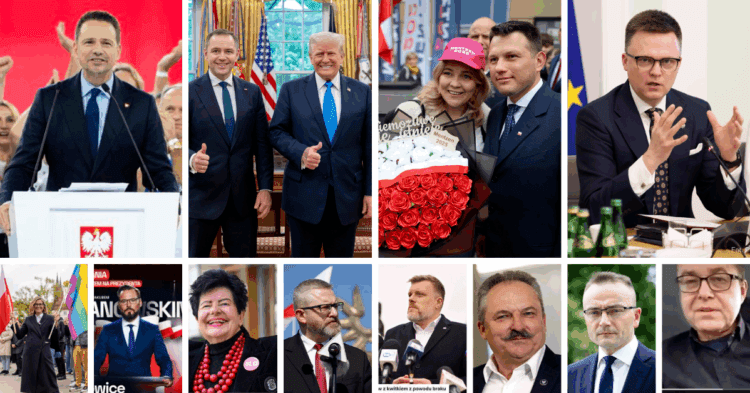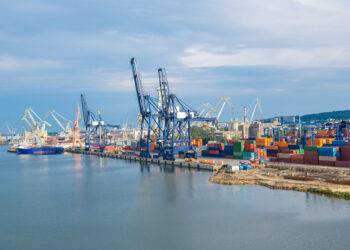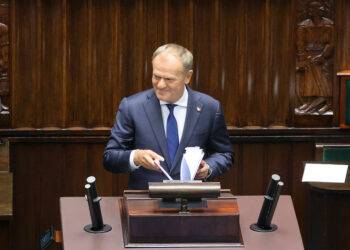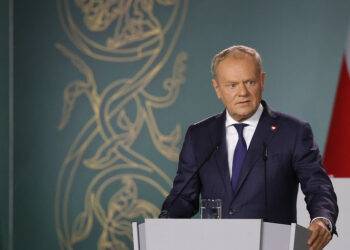Poland’s presidential election delivered a dramatic first-round finish Sunday, with exit polls showing centrist Warsaw Mayor Rafał Trzaskowski narrowly ahead of nationalist rival Karol Nawrocki. The close result sets up a high-stakes runoff on June 1, underscoring deep divisions over the country’s future and its place in Europe.
Trzaskowski, a key ally of Prime Minister Donald Tusk and the Civic Platform party, captured 30.8 percent of the vote, according to an Ipsos exit poll. Nawrocki, backed by the right-wing Law and Justice (PiS) party, trailed closely with 29.1 percent. Other exit polls reported similar margins, with some placing Trzaskowski as high as 31.6 percent and Nawrocki at 29.8 percent.
No Majority Winner, Runoff Required
With neither candidate securing the 50 percent needed for an outright victory, Poland will head to a second round that is expected to be fiercely contested. The presidency, while largely ceremonial, wields significant power through the ability to veto legislation and shape foreign policy, making the outcome crucial for the country’s direction.
A crowded field of 13 candidates failed to produce any other close contenders. Far-right candidate Sławomir Mentzen finished third with about 15 percent, while the remaining candidates lagged well behind.
Exit Poll Results (Ipsos)
| Candidate | Percentage (%) |
|---|---|
| Rafał Trzaskowski | 30.8 |
| Karol Nawrocki | 29.1 |
| Sławomir Mentzen | 15.4 |
| Adrian Zandberg | 5.2 |
| Grzegorz Braun | 6.2 |
| Szymon Hołownia | 4.8 |
| Magdalena Biejat | 4.1 |
A Nation at a Crossroads
The election has become a referendum on Poland’s direction. Trzaskowski has pledged to deepen ties with the European Union, restore judicial independence, and liberalize social policies. Nawrocki, in contrast, has promised lower taxes, a rollback of EU environmental and migration policies, and a return to traditional values, echoing the rhetoric of former U.S. President Donald Trump.
Join us for LIVE COVERAGE of Election night.
Prime Minister Tusk’s government, which ended eight years of nationalist PiS rule in 2023, has faced resistance from the outgoing president and opposition. The outcome of the presidential race will determine whether Tusk’s pro-European reforms can proceed or face continued obstruction.
Strong Turnout and Next Steps
Nearly 29 million Poles were eligible to vote, and turnout was expected to be high amid intense public interest and a campaign dominated by debates over foreign policy, LGBTQ rights, abortion, and the cost of living. More than 260,000 election officials began counting ballots after polls closed at 9 p.m. local time, with official results expected Monday or Tuesday.
Both leading candidates addressed supporters after the exit polls. Trzaskowski called for unity and urged his backers to mobilize for the runoff. Nawrocki framed the coming vote as a battle for Poland’s sovereignty and traditional values.
Security and Foreign Interference
The campaign was marked by reports of foreign interference, including cyberattacks targeting the ruling coalition and allegations of foreign-funded political ads on social media. The ongoing war in neighboring Ukraine and broader European security concerns also weighed heavily on voters’ minds, with candidates offering sharply different visions for Poland’s role in the region.
Looking Ahead
The June 1 runoff is expected to be highly competitive, with both camps seeking to win over supporters of eliminated candidates. Analysts warn that the result could have far-reaching consequences for Poland’s domestic stability and its standing in the European Union.
“If Nawrocki becomes president, the government would be paralyzed, which could ultimately lead to the collapse of the ruling coalition,” said political analyst Anna Materska-Sosnowska. “His success could herald the resurgence of populists with renewed vigor in the next general election.”
As the official count continues, attention now turns to the candidates’ strategies for the final round and the alliances they will seek to build in the closing days of this pivotal election. The outcome will shape not only Poland’s domestic trajectory but also its role on the European and global stage.


















